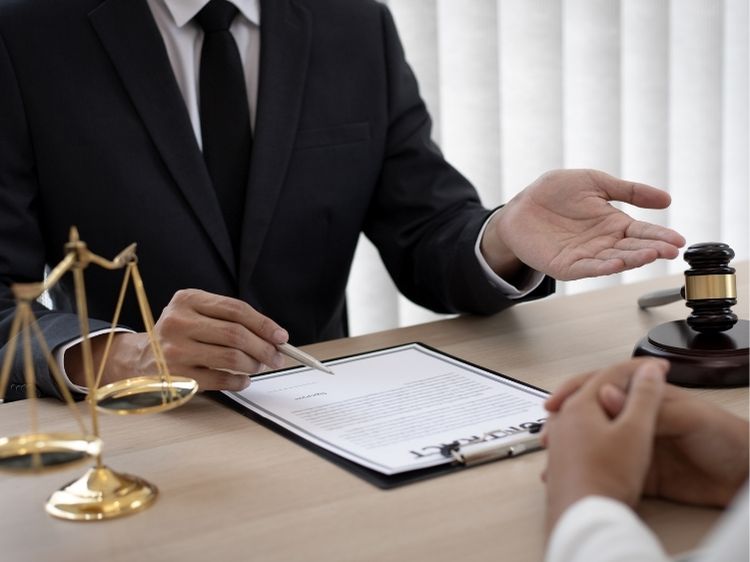Lead poisoning remains a serious public health issue, affecting thousands of individuals each year, especially young children. When this toxic exposure results from negligence or failure to maintain safe environments, it often leaves victims and their families wondering about their legal options. Here’s where lead poisoning lawyers step in, ready to navigate the complexities of these cases, hold responsible parties accountable, and secure justice for their clients.
What is Lead Poisoning?
Lead poisoning occurs when lead builds up in the body, often over months or years. Even small amounts of lead can cause severe health issues, particularly for children, and can lead to developmental delays, learning difficulties, and various physical and mental health problems. Let’s break down the causes:
- Lead Paint: Common in homes built before 1978, deteriorating lead-based paint is a significant source of exposure.
- Water Contamination: Lead pipes or plumbing systems, like those implicated in Flint, Michigan, expose entire communities.
- Soil and Dust: Lead can be present in soil near old buildings or industrial areas, seeping into nearby homes.
The toll of lead exposure can be immense, and often, legal action is the best way to secure compensation for medical expenses, pain, and suffering.
Why Hire a Lead Poisoning Lawyer?
If you or a loved one has suffered from lead poisoning due to someone else’s negligence, a lead poisoning lawyer can be invaluable in several ways:
- Expert Knowledge: Lead poisoning cases are complex, involving various regulations and expert witness testimony.
- Case Building: Lawyers will gather evidence, work with toxicology experts, and ensure the case highlights the impact of the exposure.
- Negotiation and Settlement: Many cases settle out of court, but experienced attorneys ensure you receive fair compensation.
- Trial Representation: If your case proceeds to trial, having an attorney with courtroom experience is critical.
Common Cases Handled by Lead Poisoning Lawyers
Lead poisoning lawyers take on cases that often arise from negligence by property owners, landlords, and even manufacturers. Here’s a look at some typical scenarios:
- Tenant Exposure in Rental Properties
Landlords have a legal obligation to maintain rental properties free of lead hazards, especially in older buildings. When they fail to make required repairs or fail to warn tenants, they can be held liable. - Public Water System Contamination
Cases like Flint, Michigan, are tragic examples where municipal or state negligence in maintaining safe water systems leads to widespread exposure. - School or Workplace Exposure
Lead exposure in schools or workplaces often results from outdated infrastructure, where lead pipes or paint have not been adequately removed or contained.
Steps in Pursuing a Lead Poisoning Lawsuit
Taking legal action for lead poisoning can feel overwhelming, but a structured approach helps. Here’s how the process typically unfolds:
- Initial Consultation: Most lead poisoning lawyers offer free consultations to evaluate the case.
- Case Investigation: Lawyers collect records, inspect the site of exposure, and consult with medical experts.
- Filing the Claim: If the evidence supports a strong case, the lawyer will file a lawsuit against the responsible party.
- Settlement Negotiations or Trial: Many cases settle outside court, but some may proceed to trial if fair compensation isn’t offered.
What to Look for in a Lead Poisoning Lawyer
Choosing the right lawyer can make or break your case. Here are some qualities to prioritize:
- Experience in Toxic Tort Law: Look for lawyers specializing in cases involving environmental toxins.
- Track Record of Success: A lawyer with a history of successful lead poisoning cases indicates experience and expertise.
- Excellent Communication: A lawyer who keeps you informed and explains complex details in simple terms is a valuable ally.
- Contingency Fees: Many lead poisoning lawyers work on a contingency basis, meaning they only get paid if you win.
FAQs on Lead Poisoning Lawyers
- How long do I have to file a lead poisoning lawsuit?
Statutes of limitations vary by state, but generally, it’s a few years from the date of exposure or diagnosis. Consult a lawyer promptly to avoid missing critical deadlines. - What compensation can I receive in a lead poisoning case?
Compensation may cover medical expenses, pain and suffering, lost wages, and sometimes punitive damages if negligence was severe. - How do I know if my child has lead poisoning?
Common symptoms include developmental delays, irritability, weight loss, and learning difficulties. A blood test can confirm lead poisoning. - Can I file a claim if I don’t know who’s responsible for the lead exposure?
Yes, an experienced lead poisoning lawyer can investigate and help determine responsible parties, whether it’s a landlord, city officials, or manufacturers. - Are lead poisoning cases difficult to prove?
While challenging, a skilled lawyer uses evidence like blood tests, expert testimony, and inspection records to establish exposure and harm.
Summary: The Role of Lead Poisoning Lawyers in Justice and Recovery
Lead poisoning can shatter lives, but skilled lead poisoning lawyers help victims take a stand, seek compensation, and pursue accountability. By navigating complex legal frameworks and working with experts, they provide a critical pathway for those affected by negligence to reclaim a sense of justice and support.
Authoritative Links:
- CDC Lead Poisoning Prevention: cdc.gov/nceh/lead
- EPA on Lead in Paint, Dust, and Soil: epa.gov/lead
- American Bar Association – Toxic Torts: americanbar.org/groups/environmental_issues

